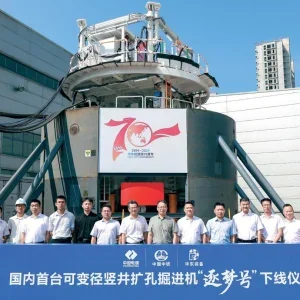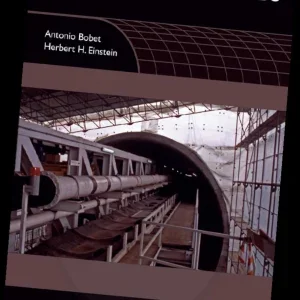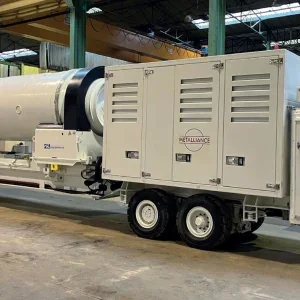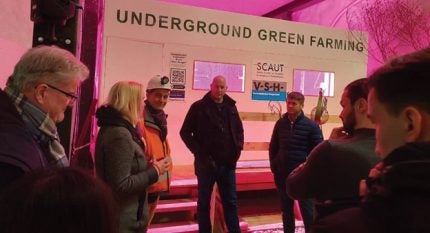
The relationship between systemic change and underground spaces is multifaceted and significant, particularly in the context of urban development and sustainability.
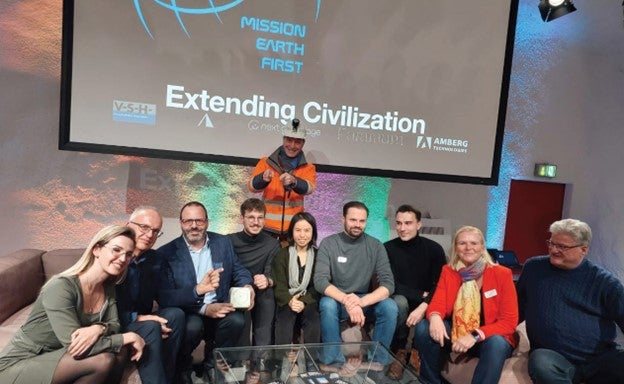
Systemic change refers to fundamental shifts in societal structures, policies, and practices aimed at addressing pressing challenges such as climate change, population growth, and resource depletion. Underground spaces offer unique opportunities to facilitate and support these changes in several ways:
- Urban Resilience: Integrating underground spaces into urban planning allows cities to diversify their infrastructure and create redundancy systems. During times of crisis, such as natural disasters or pandemics, underground spaces can serve as shelters, storage facilities, or transportation hubs, enhancing a city’s resilience.
- Resource Management: Utilising underground spaces for storage, waste management, and renewable energy production can optimise resource utilisation and reduce environmental impact. For example, underground storage facilities can mitigate land use conflicts and preserve green spaces, contributing to sustainable urban development.
- Transportation and Connectivity: Developing underground transportation networks, such as subways or underground tunnels, can alleviate congestion and pollution on the surface. These systems promote sustainable mobility options, facilitating systemic shifts towards low carbon transportation.
- Innovation and Adaptation: Embracing underground spaces encourages innovation in design, construction, and technology. As cities evolve to meet the demands of systemic change, underground spaces provide testing grounds for new solutions and adaptive strategies, fostering continuous improvement and resilience.
- Cultural and Social Integration: Integrating underground spaces into the urban fabric enhances community engagement and cultural vitality. Public spaces, recreational facilities, and artistic venues below ground level contribute to the creation of inclusive and vibrant urban environments, promoting social cohesion and well-being.
In essence, the effective utilisation of underground spaces aligns with the goals of systemic change by promoting sustainability, resilience, and innovation in urban development. By recognising the potential of underground spaces and integrating them into broader systemic transformations, cities can navigate the challenges of the 21st century more effectively while creating more liveable and sustainable environments for future generations.
HOW SYSTEMIC CHANGE REQUIRES US TO THINK WITHOUT THE BOX
How systemic change requires us to think without the box is poignantly illustrated in the collaboration ITACUS has with Mission Earth First. At core, the initiative has only one goal: extending civilisation. Civilisations have collapsed in the past and with them much of the knowledge they acquired over centuries. Just think about how the destruction of the Alexandria Library left future generations with nothing to build upon. The premise of extending civilisation applies to this planet, whilst at the same time also thinking about how our civilisation could expand to other planets.
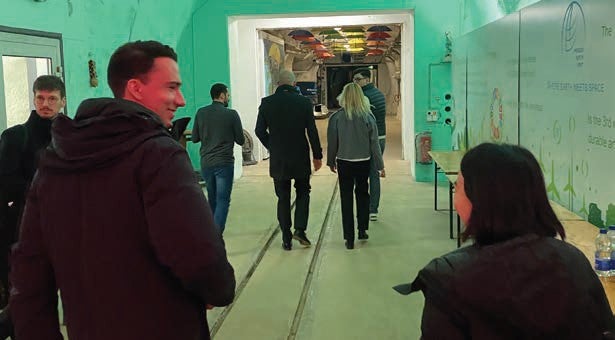
The role of underground space in both of these aspects is crucial. Surviving outside the security of Earth’s atmosphere requires protection against radiation. New habitats, whether on the Moon or on Mars, would need to explore the possibilities of creating life beneath the surface for survival. The European Space Agency (ESA) is already testing this with what has been dubbed ‘cavenauts’. More to the point, however, is that systemic change requires us to rethink how we create and sustain habitats on this planet. Could a future of outer space habitats point us to underground space habitats that could provide solutions to the many challenges we face on this planet?
WHERE EARTH MEETS SPACE
Mission Earth First aims to connect outer space and underground space and provide a platform of collaboration where rather than just focusing on one objective, we bring together both objectives. It requires a leap of the imagination, it requires innovation, in the end, that is what systemic change is all about. In a way Mission Earth First is not an extinction rebellion, it is an extension rebellion.
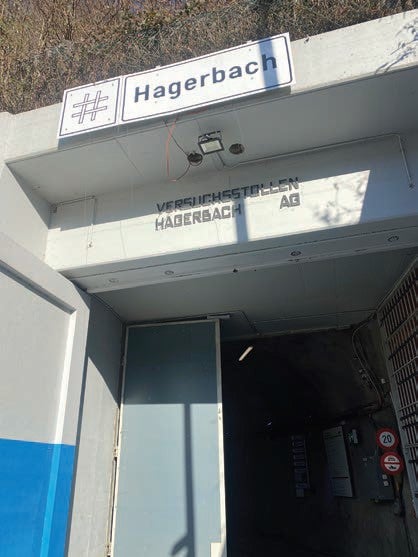
For ITACUS it adds a whole new dimension to the development of underground space. Not just to enhance cities, it is about extending the lifespan of civilisations both on this planet and on other planets. This would not just be by thinking about living below the surface but more about how we can use the subsurface to grow food, provide energy and contribute to selfsustaining habitats. For that, we need to create physical spaces in the subsurface that make this possible, from growing plants to safeguarding knowledge for future generations.
COLLABORATIVE INNOVATION FOR SYSTEMIC CHANGE
The World Systemic Forum (WSF), conceived by visionary Rudolf Hilti in 2020, stands as a beacon of collaborative innovation in the realm of systemic change. This annual gathering, hosted by the System Change Foundation, serves as a prelude to the World Economic Forum in Davos, Switzerland, attracting esteemed leaders from various sectors to deliberate on shaping the future of our global community.
Echoing the momentum of the 2023 Forum, which was themed ‘No Collaboration Without Communication,’ the 2024 edition unveiled a new theme: ‘Every Change is a Challenge.’ Rooted in the belief that systemic transformation flourishes through interconnected thinking and collaborative action, this year’s WSF looked to inspire and ignite change on a global scale.
Held in January, the 2024 WSF titled delved into pivotal themes, including the expansion of Artificial Intelligence (AI), reimagining carbon as an asset, the scaling of blended finance models, harnessing creativity as a driver of social change, and the groundbreaking launch of the inaugural ‘Earth- Backup’ initiative. With an audience comprising global changemakers and the esteemed presence of Liechtenstein’s Prime Minister, Dr. Daniel Risch, the forum set a transformative tone for the year ahead.
In a testament to its commitment to innovation and collaboration, ITACUS made its mark at the WSF for the second consecutive year. Representatives Antonia Cornaro and Han Admiraal (Co-Chairs) engaged in the thought-provoking discussions, hosted by Rudi Hilti within Switzerland’s Hagerbach Test Gallery. As partners of the System Change Foundation within Mission Earth First, ITACUS continues to advocate for the exploration and utilisation of underground spaces in preparation for future missions into outer space.
The unique venue choice of the Hagerbach Test Gallery, part of the Amberg Group, nestled within the depths of a mountain, reflects Hilti’s unconventional approach to fostering transformative dialogue. Steering away from traditional conference settings, the Forum’s underground setting encouraged attendees to break free from conventional thinking and embrace innovative perspectives.
At the heart of WSF’s mission lies a dedication to building a sustainable future for both Earth and space exploration. Collaborations between ITACUS, the Arch Mission Foundation, and other visionary partners like the Swiss Center of Applied Underground Technologies (SCAUT), Next Gen Village and Pararaum, exemplify a collective commitment to preserving humanity’s heritage and advancing technological frontiers.
Policy discussions held during the WSF, including an insightful dialogue with Prime Minister Dr. Daniel Risch, underscored the importance of leveraging underground spaces for sustainable urban development and resilience planning. As humanity faces unprecedented challenges, these spaces offer untapped potential for addressing critical needs such as food security, data storage, and mobility infrastructure.
A highlight of WSF 2024 was the unveiling of the Global Knowledge Vault, a monumental endeavour spearheaded by the Arch Mission Foundation. Now safeguarded within the Hagerbach mountain, this repository serves as humanity’s backup plan, preserving our collective knowledge and culture for future generations.
With plans to expand this initiative globally, the WSF exemplifies a bold step towards securing humanity’s legacy in the face of uncertainty.
Looking ahead, ITACUS, Arch Mission, Hagerbach, and their partners are poised to continue their journey with Mission Earth First, charting new frontiers and unlocking the boundless potential of underground spaces. As agents of change, they remain steadfast in their commitment to extending civilisation and shaping a brighter future for generations to come.
Tunnellers alert: there’s plenty of space for exciting new opportunities out there!



